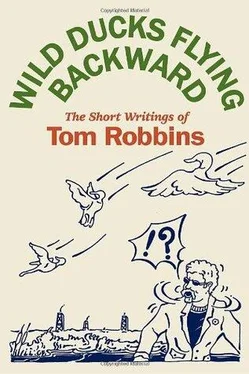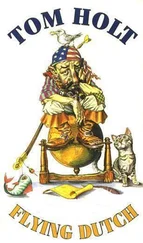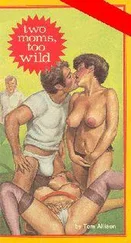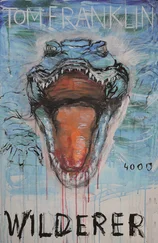Esquire, 1989
Of the genius waitress, I now sing.
Of hidden knowledge, buried ambition, and secret sonnets scribbled on cocktail napkins; of aching arches, ranting cooks, condescending patrons, and eyes diverted from ancient Greece to ancient grease; of burns and pinches and savvy and spunk; of a uniquely American woman living a uniquely American compromise, I sing. I sing of the genius waitress.
Okay, okay, she’s probably not really a genius. But she is well-educated. She has a degree in Sanskrit, ethnoastronomy, Icelandic musicology, or something equally valued in the contemporary marketplace. Even if she could find work in her chosen field, it wouldn’t pay beans — so she slings them instead. (The genius waitress is not to be confused with the aspiring-actress waitress, so prevalent in Manhattan and Los Angeles and so different from her sister in temperament and I.Q.)
As a type, the genius waitress is sweet and sassy, funny and smart; young, underestimated, fatalistic, weary, cheery (not happy, cheerful: there’s a difference and she understands it), a tad bohemian, often borderline alcoholic, frequently pretty (though her hair reeks of kitchen and bar); as independent as a cave bear (though ever hopeful of “true love”) and, above all, genuine .
Covertly sentimental, she fusses over toddlers and old folks, yet only fear of unemployment prevents her from handing an obnoxious customer his testicles with his bill.
She doesn’t mind a little good-natured flirting, and if you flirt with verve and wit, she may flirt back. Never, however, never try to impress her with your résumé. Her tolerance for pretentious Yuppies ends with her shift, sometimes earlier. She reads men like a menu and always knows when she’s being offered leftovers or an artificially inflated soufflé.
Should you ever be lucky enough to be taken home by her to that studio apartment with the jerry-built bookshelves and Frida Kahlo posters, you will discover that whereas in the public dining room she is merely as proficient as she needs to be, in the private bedroom she is blue gourmet virtuoso. Five stars and counting! Afterward, you can discuss chaos theory or the triple aspects of the mother goddess in universal art forms — while you massage her swollen feet.
Eventually, she leaves food service for graduate school or marriage, but unless she wins a grant or a fair divorce settlement, chances are she’ll be back, a few years down the line, reciting the daily specials with her own special mixture of warmth and ennui.
Erudite emissary of eggs over easy, polymath purveyor of polenta and prawns, articulate angel of apple pie, the genius waitress is on duty right now in hundreds of U.S. restaurants, smile at the ready, sauce on the side. So brush up on your Schopenhauer, place your order — and tip, mister, tip. She deserves a break today.
Of her, I sing.
Playboy, 1991
If cows watched horror movies, everybody knows who their favorite monster would be.
Imagine that it’s Friday midnight down on the farm and the Guernseys and the Angus are gathered around the barnyard TV, spellbound by the rerun of that classic bovine chiller, Teats Up, when suddenly the lights flicker, organ music swells, and onto the screen ambles a chesty, cherubic octogenarian in a business suit, swinging a cleaver and flashing a mystic ring with symbolic golden arches on it, and, oh, a terrified moo rises from the herd and there is much trembling of udder and tail. At that moment, a little bullock in the back is heard to ask, “Mommy, on Halloween can I go as Ray Kroc?”
To cattle, Ray Kroc is the franchise Frankenstein, the Hitler behind a Hereford holocaust, a fiend who has sent about 550,000 of their relatives to the grinder, grinning all the while and encouraging his henchmen with his macabre credo, “Remember, ten patties to the pound!”
It’s scant comfort to the cows that Kroc has also doomed fifty million cucumbers to be pickled and chopped, or that he’s boiled more than half a billion potatoes in oil. Apparently, potatoes and cukes don’t mind. They’re said to like being processed. It’s their idea of emancipation.
Botanists, especially if they’re Catholic, might argue that since cucumbers are, in fact, the ovaries of the cucumber plant, they can be fulfilled only through reproduction, but the truth is, many such vegetables are sick and tired of being regarded as sex objects and baby factories; they want to break out of the mold, to travel and meet people and be appreciated for themselves, and Kroc gives them that opportunity. If pickles wore sandals, Ray Kroc would be Moses. But that’s another story.
Whether one chooses to mourn with the meats or rejoice with the veggies is a religious decision and nobody’s business but one’s own. The point here is not that Kroc has wiped out considerable fauna and flora, nor that he’s become thunderously wealthy in the process, but that the manner in which he merchandises his victims’ remains has transformed the United States of America.
Kroc, of course, is the man behind McDonald’s. He was a middle-aged milkshake-machine salesman out of Chicago when, in 1954, he called on an account in San Bernardino and saw the future. Its name was fast foods.
Curious about how a little California drive-in could keep eight of his Multi-mixers running continuously, Kroc found a restaurant stripped down to the minimum in service and menu, a precision shop turning out fries, beverages, and fifteen-cent hamburgers on an assembly line. The brainchild of the McDonald boys, Mac and Dick, it combined speed, simplicity, and edibility to a degree that made Kroc giddy, especially when the brothers readily agreed to sell him the rights for national development. It was as if Henry Ford had married Mom’s Apple Pie and adopted Ray as their son and heir.
Mac and Dick McDonald, never overly ambitious, were more of a hindrance than a help, but Kroc, an energetic dreamer, built a $7.8 billion empire of 7,400 drive-ins and somewhere along the way named the Big Mac double burger after one of the brothers. (Since these are “family” restaurants, it’s easy to understand why it wasn’t named for the other one.)
Modern America is dominated — environmentally, culturally, and psychologically — by freeways, and it has been McDonald’s and its imitators (Go Burger King! Go Wendy’s! Go Jack in the Box!) that have nurtured our freeway consciousness and allowed it to bloom. In the past, hungry motorists could look through their windshields and pick and choose from a glorious ongoing lineup of diners, truck stops, and barbecue pits, but such an array of roadside attractions would defeat the purpose of a freeway, as would the time and trouble involved if a driver had to exit at random and search an unfamiliar neighborhood for the unfamiliar restaurant that might suit his or her schedule, pocketbook, and taste.
Thanks to Kroc, the migrating masses simply aim their protruding stomachs at the landmark arches, sinuous of form and sunny of hue, and by the first belch they’re back on the road, fast fed and very nearly serene, which is to say, no cashier has cheated them; no maître d’ has insulted them; no temperamental chef, attractive waitress, or intriguing flavor has delayed them; they’ve neither gagged on a greasy spoon nor tripped over an x in a oie roti aux pruneaux . With McDonald’s, they’re secure.
That’s the fly in the Egg McMuffin. Rather, the fly is that there never is a fly in an Egg McMuffin. The human spirit requires surprise, variety, and risk in order to enlarge itself. Imagination feeds on novelty. As imagination emaciates, options diminish; the fewer our options, the more bleak our prospects and the greater our susceptibility to controls. The wedding of high technology and food service has produced a robot cuisine, a totalitarian burger, the standardized sustenance of a Brave New World.
Читать дальше












